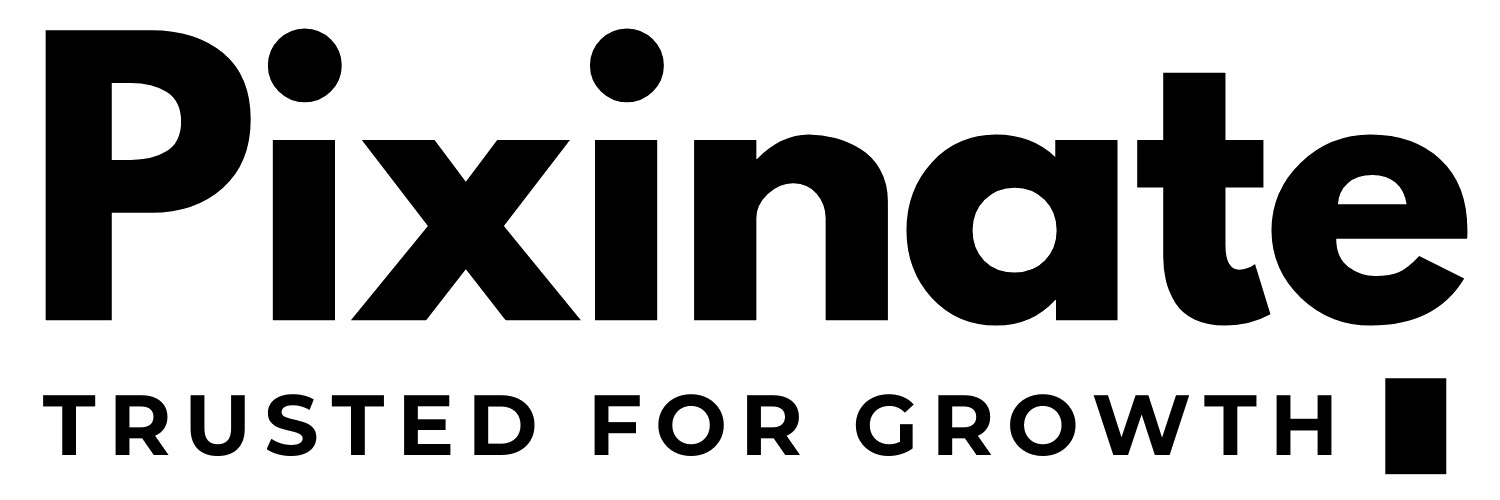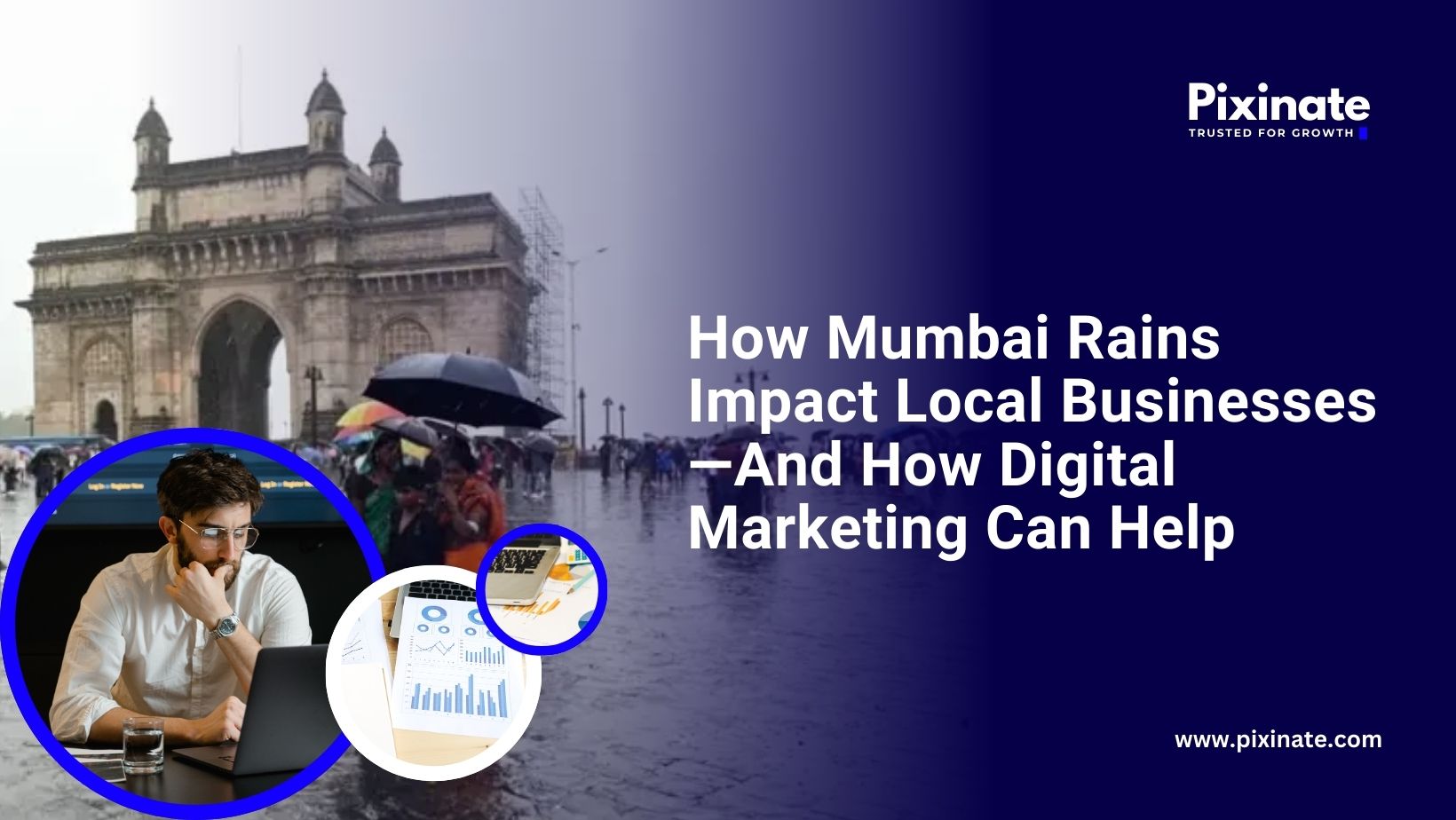AI is revolutionizing how we work, live, and interact with technology. In the realm of digital marketing, it has become a game-changer. Businesses now harness artificial intelligence to gain insights, automate tasks, enhance customer experiences, and drive better ROI.
In this detailed guide by Pixinate, we’ll explore how AI works in digital marketing by diving into its fundamentals, types, real-world applications, and the future scope it holds.
Table of Contents
ToggleWhat is AI?
Artificial Intelligence (AI) refers to a branch of computer science focused on replicating human intelligence through machines. AI uses advanced algorithms and machine learning to analyze vast datasets, recognize patterns, make predictions, and perform tasks that traditionally required human intellect.
From understanding user behavior to creating personalized experiences, AI has transformed the digital marketing space. Knowing how AI works in digital marketing is crucial for businesses to stay ahead in the competitive market.
Types of AI
AI is categorized based on its capabilities and functionalities.
Based on Capabilities:
- Narrow AI (Weak AI): Performs specific tasks based on its training. Commonly used in applications like voice assistants and recommendation engines.
- General AI: A hypothetical form of AI with human-like intelligence capable of learning and performing a wide variety of tasks. Still under research.
- Super AI: Theoretical AI that surpasses human intelligence. This concept is still speculative.
| Characteristic | Narrow AI | General AI |
|---|---|---|
| Capabilities | Task-specific | Multi-tasking |
| Current Status | Widely Used | In Development |
| Examples | Siri, Alexa | N/A |
| Human-like Intelligence | No | Yes |
| Learning Ability | Task-specific | Adaptive Learning |
Based on Functionalities:
- Reactive Machines: No memory-based functionality. Simple responses to input.
- Limited Memory: Remembers past data to make better decisions (used in self-driving cars).
- Theory of Mind: Hypothetical AI that understands emotions and social interactions.
- Self-aware AI: Theoretical AI with self-consciousness.
How AI Works in Digital Marketing
The real power of AI is evident when we look at how AI works in digital marketing. The global market revenue for AI in marketing is expected to reach $107 billion by 2028. Here’s how AI is revolutionizing the digital marketing landscape:
1. Predictive Analytics
Predictive analytics leverages AI to forecast future consumer behavior based on historical data. AI models analyze data like browsing history, purchase records, and social media behavior to:
- Identify potential leads
- Predict customer churn
- Recommend products/services
Understanding how AI works in digital marketing through predictive analytics enables marketers to develop smarter, more tailored campaigns.
2. Customer Segmentation
AI allows marketers to break down a diverse customer base into precise segments based on demographics, behaviors, and interests. Unlike traditional segmentation, AI can:
- Detect hidden patterns
- Provide real-time segmentation
- Increase personalization
For example, a fashion eCommerce brand can use AI to identify a segment interested in sustainable clothing and deliver campaigns targeting that group specifically. This shows how AI works in digital marketing to improve customer engagement.
3. Ad Targeting and Placement
AI improves both targeting and placement of ads. It processes massive data sources to understand user intent and context, optimizing ad delivery based on:
- User behavior
- Demographics
- Content relevance
AI determines the best time, channel, and format to show ads, significantly improving conversion rates. Understanding how AI works in digital marketing here means spending smarter and getting higher ROI.
4. Automation
Marketing automation powered by AI saves time, reduces manual errors, and improves campaign consistency. Applications include:
- Automated email campaigns
- Chatbots for customer service
- AI-driven social media scheduling
- PPC ad optimization
These tools demonstrate how AI works in digital marketing by reducing repetitive tasks and letting marketers focus on strategy.
5. Personalized Content Creation
AI tools like ChatGPT and Jasper help generate content outlines, product descriptions, and blog drafts. While human creativity is still essential, AI assists in:
- Speeding up content production
- Aligning messaging with user interests
- A/B testing variations quickly
Businesses that understand how AI works in digital marketing leverage these tools to stay relevant and consistent in their messaging.
Future Trends: What’s Next for AI in Digital Marketing?
By 2030, AI is expected to fully power autonomous marketing campaigns where minimal human input is required. Here’s a sneak peek:
- Hyper-personalized video and voice marketing
- Real-time emotional AI for sentiment targeting
- AI-enhanced influencer marketing
- Fully automated omnichannel marketing
These advancements further highlight how AI works in digital marketing to reshape customer experiences.
Why Businesses Need to Embrace AI Now
AI is no longer optional — it’s essential. From startups to enterprises, understanding how AI works in digital marketing provides a clear advantage by:
- Improving ROI
- Enhancing customer satisfaction
- Staying ahead of competitors
- Making data-driven decisions
With tools becoming more accessible and cost-effective, now is the time to invest in AI-driven marketing strategies.
Final Thoughts by Pixinate
At Pixinate, we believe in helping businesses embrace the future. Our AI-integrated digital marketing services are built to ensure your brand doesn’t just keep up — it leads. From automation to personalization, we apply cutting-edge technology that shows exactly how AI works in digital marketing to elevate your brand.
Let Pixinate guide you into the AI-powered marketing era. Connect with us today to start your digital transformation journey.
Source– Swapnil Kankute




1 Comment